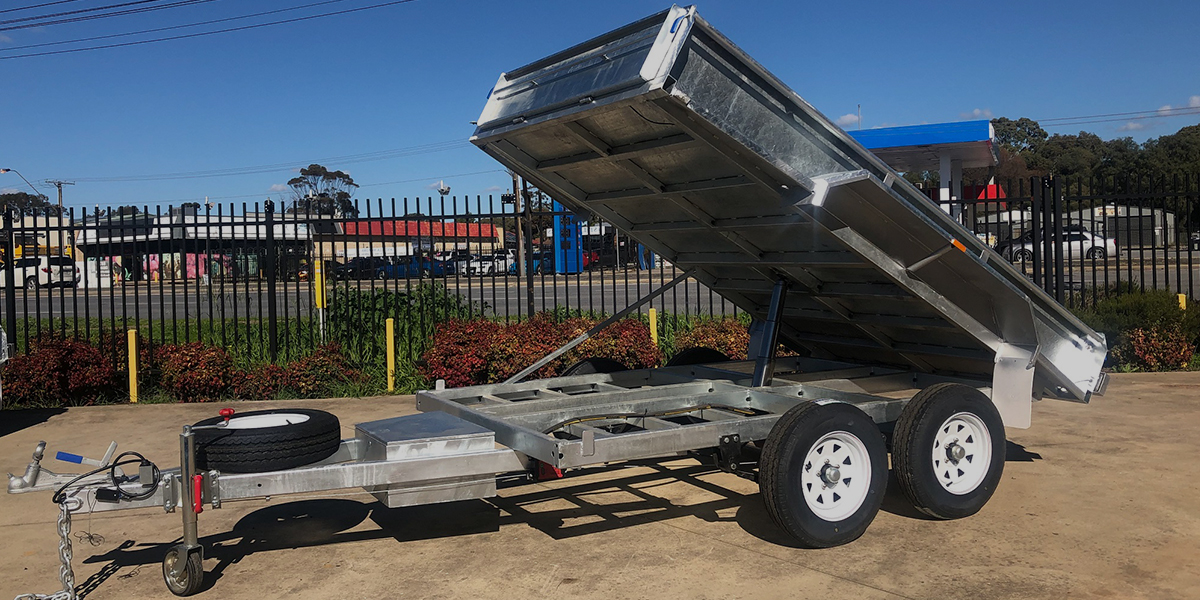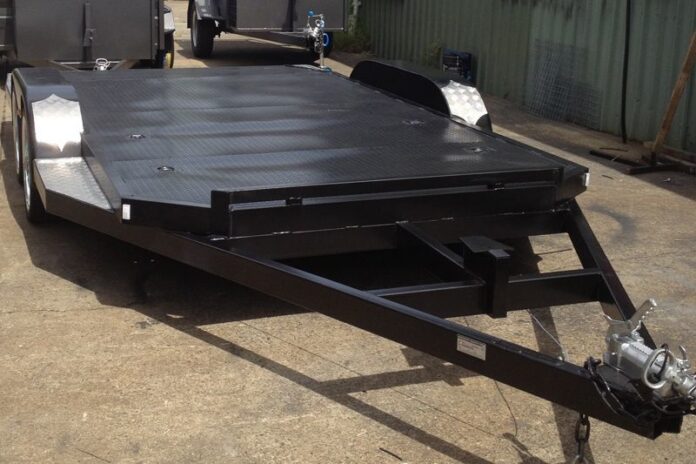Welcome to our blog! Today, we’re diving into the world of trailer repairs. Whether you’re a seasoned trailer owner or just starting, it’s important to understand the basics of maintaining and fixing your trailer. From flat tires to brake checks, we’ll cover it all in our Trailers Repairs 101 guide. So buckle up and get ready to learn everything you need to know about keeping your trailer in top shape for all your hauling needs. Let’s hit the road!
Identifying Common Trailer Issues
When it comes to owning a trailer, there are common issues that many owners may encounter. Identifying these issues early on can save you time and money and prevent potential accidents on the road. One common issue is a flat tire.
Whether it’s due to a puncture or low air pressure, flat tires can quickly put a damper on your plans. Another common issue is trailer sway, which can be caused by improper weight distribution or improper hitch setup. Trailer sway can make towing difficult and dangerous.
Other common issues include faulty lights, loose or damaged connections, and worn-out brake pads. By identifying these common trailer issues, you can address them promptly and keep your trailer in top shape. Stay tuned for our upcoming section on how to decide between doing it yourself or hiring a professional for your trailer repairs.
Do it yourself or Hire a Pro: Making the Decision.
As a trailer owner, you may find yourself faced with a common dilemma – should you tackle the repairs yourself or hire a professional? While there is no one-size-fits-all answer to this question, there are a few factors to consider when making your decision.
First and foremost, it’s essential to assess your skill level and comfort with trailer repairs. If you have experience working with trailers and feel confident in your abilities, you can handle smaller repairs on your own. However, if you’re new to trailer ownership or lack the necessary knowledge and tools, it’s best to leave the repairs to the professionals.
Another factor to consider is the complexity of the repair. Some trailer issues, such as a flat tire or loose connection, may be relatively simple to fix and can be done yourself with the right guidance. On the other hand, more complicated repairs, like brake maintenance or electrical problems, may require specialized knowledge and equipment that only a professional can provide.
Cost is also a significant factor to weigh. While DIY repairs can save you money on labour costs, you should also consider the potential risks and consequences of doing it wrong. A small mistake could end up causing further damage, leading to even more expensive repairs down the line. In some cases, it may be more cost-effective to hire a professional from the start to ensure the job is done right.
A Deep Dive into Essential Trailers Repairs
Now that you have a good understanding of the common trailer issues and the decision-making process for repairs let’s take a deep dive into some essential trailer repairs. We’ll explore the nitty-gritty details of maintaining and fixing your trailer to ensure it stays in top shape.
First up, let’s talk about brake checks and maintenance. Your trailer’s brakes are a crucial component for safe towing. Regularly inspecting and maintaining your brakes can help prevent accidents and ensure smooth operation. We’ll cover everything from checking brake pads and rotors to adjusting brake controllers and bleeding brake lines. You’ll learn how to identify signs of brake wear and how to address them effectively.
Next, we’ll move on to securing loose connections and fasteners. Loose connections and fasteners can cause serious safety hazards, so it’s essential to inspect and tighten them regularly. We’ll guide you through the process of checking and tightening everything from coupler connections to hitchball nuts. We’ll also discuss the importance of using proper torque specifications and techniques to ensure secure connections.
Finally, we’ll tackle electrical problems on your Trailers Repairs. Faulty wiring and electrical issues can lead to trailer lights not working, brake lights malfunctioning, or even complete electrical failure. We’ll provide troubleshooting tips to help you identify and fix common electrical problems, such as faulty connectors, damaged wires, or blown fuses. You’ll learn how to use a multimeter to test electrical connections and how to replace faulty components safely.
Understanding the Basics of Brake Check and Maintenance
When it comes to maintaining your trailer, one of the most critical components to keep an eye on is the brakes. Proper brake checks and maintenance are essential for safe towing and preventing accidents on the road. So, let’s dive into the basics of brake check and maintenance to ensure your trailer is always in top shape.
 First and foremost, it’s crucial to inspect your trailer’s brake system regularly. Look for any signs of wear and tear, such as thinning brake pads or damaged rotors. If you notice any issues, it’s essential to address them promptly to prevent further damage and ensure optimal braking performance.
First and foremost, it’s crucial to inspect your trailer’s brake system regularly. Look for any signs of wear and tear, such as thinning brake pads or damaged rotors. If you notice any issues, it’s essential to address them promptly to prevent further damage and ensure optimal braking performance.
Additionally, you should also adjust your trailer’s brake controller if necessary. The brake controller determines the amount of braking power applied to the trailer’s wheels when you press the brake pedal in your vehicle. Adjusting the brake controller allows you to fine-tune the braking performance based on the weight and load of your trailer.
Another important aspect of brake check and maintenance is bleeding the brake lines. This process removes any air bubbles or contaminants from the brake fluid, ensuring smooth and effective brake operation. It’s recommended to bleed the brake lines regularly, especially if you’ve recently replaced any brake components.
Securing Loose Connections and Fasteners
When it comes to securing loose connections and fasteners on your trailer, it’s all about safety first. Loose connections and fasteners can pose serious hazards while you’re on the road, so it’s crucial to inspect and tighten them regularly. A loose connection or fastener can lead to instability and compromise the structural integrity of your trailer, putting you, your cargo, and other drivers at risk.
To secure loose connections and fasteners:
- Start by conducting a thorough inspection of your trailer.
- Check all coupler connections, hitchball nuts, and any other areas where connections are made.
- Look for any signs of looseness or wear, such as visible gaps or movement. If you find any loose connections, use the appropriate tools, such as wrenches or pliers, to tighten them.
- Remember to follow the manufacturer’s recommendations for torque specifications, as overtightening can cause damage as well.
It’s also important to ensure that you’re using the correct type and size of fasteners for your trailer. Using mismatched or inadequate fasteners can compromise the integrity of the connections. Always refer to the trailer’s manual or consult with a professional if you need clarification.
Wiring Woes: Solving Electrical Problems on Your Trailer
Have you ever experienced electrical problems on your trailer? If so, you know how frustrating and potentially dangerous they can be. Faulty wiring can lead to a variety of issues, including non-functional trailer lights, brake lights that won’t turn off, or even complete electrical failure. But fear not because, in this section, we’re going to help you solve those wiring woes and get your trailer back in top shape.
The first step in solving electrical problems is to conduct a thorough inspection of your trailer’s wiring system. Look for any signs of damage, such as frayed wires, loose connectors, or blown fuses. If you spot any issues, you’ll need to address them promptly.
Next, you’ll want to test your trailer’s electrical connections using a multimeter. This handy tool allows you to check for continuity and voltage at different points in the wiring system. By using the multimeter, you can pinpoint the exact location of the problem and determine whether it’s a wiring issue or a faulty component.
Once you’ve identified the source of the problem, it’s time to make the necessary repairs. It may involve replacing damaged wires, connectors, or even the entire lighting system. It’s important to follow the manufacturer’s instructions and use the correct components for your trailer to ensure proper functionality and safety.
FAQs
Do you have some burning questions about trailer repairs? We’ve got you covered with our FAQs section. We’ve compiled the most commonly asked questions about trailer repairs and provided the answers you need. So, let’s dive in!
1. What type of jack should I use to lift my trailer?
When it comes to lifting your trailer, it’s important to use a jack specifically designed for trailers. A hydraulic bottle jack or a scissor jack is typically the best choice. These jacks provide stability and have the necessary weight capacity to handle your trailer.
2. How often should I inspect my trailer for maintenance?
Regular inspections are crucial for maintaining the safety and performance of your trailer. We recommend inspecting your trailer before each use and conducting a more thorough inspection every few months. It includes checking tires, lights, brakes, connections, and fasteners.
3. How can I determine whether my trailers repairs brakes need to be adjusted?
If your trailer feels like it’s not braking as effectively or if you notice any unusual noises or vibrations when applying the brakes, it’s likely time for an adjustment. Additionally, if you notice excessive wear on the brake pads or uneven tire wear, it’s a good idea to have your brakes inspected and adjusted.
4. What considerations should I keep in mind for towing capacity?
Knowing your trailer’s towing capacity is crucial for safe towing. You should always stay within your trailer’s specified towing capacity. It’s also important to consider factors like payload, weight distribution, and the capabilities of your vehicle. Consult your trailer’s manual or contact a professional for guidance on towing capacity.
Conclusion
In this Trailer Repairs 101 guide, we’ve covered the basics of maintaining and fixing your trailer. We’ve discussed common issues like flat tires, trailer sway, faulty lights, and worn-out brake pads. We’ve also explored the decision-making process between doing repairs yourself or hiring a professional. Additionally, we’ve taken a deep dive into essential trailer repairs, including brake checks, securing loose connections, and solving electrical problems. Hopefully, this guide has provided you with the knowledge and confidence to keep your trailer in top shape for all your hauling needs. Happy towing!

